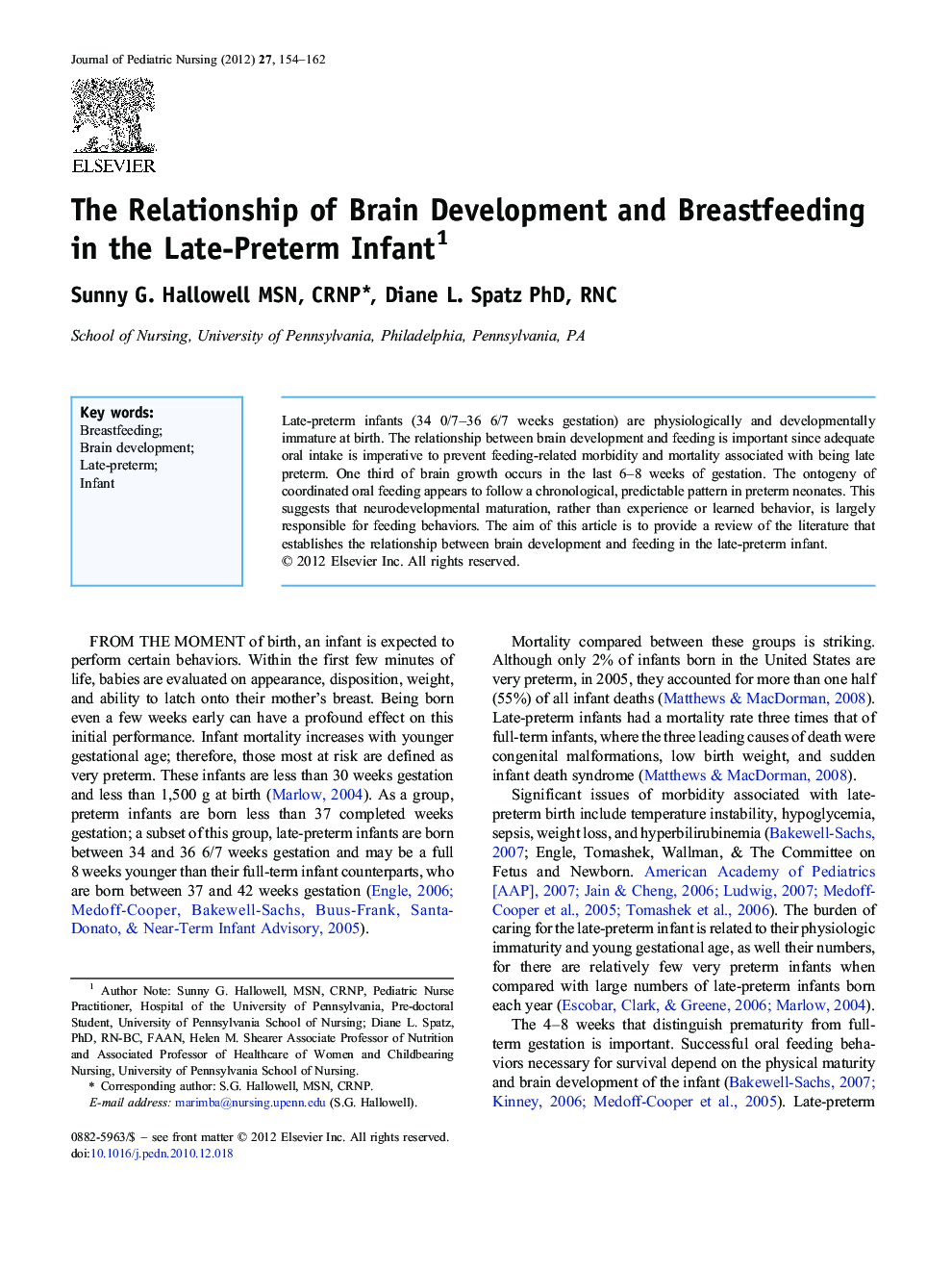| Article ID | Journal | Published Year | Pages | File Type |
|---|---|---|---|---|
| 2666833 | Journal of Pediatric Nursing | 2012 | 9 Pages |
Late-preterm infants (34 0/7–36 6/7 weeks gestation) are physiologically and developmentally immature at birth. The relationship between brain development and feeding is important since adequate oral intake is imperative to prevent feeding-related morbidity and mortality associated with being late preterm. One third of brain growth occurs in the last 6–8 weeks of gestation. The ontogeny of coordinated oral feeding appears to follow a chronological, predictable pattern in preterm neonates. This suggests that neurodevelopmental maturation, rather than experience or learned behavior, is largely responsible for feeding behaviors. The aim of this article is to provide a review of the literature that establishes the relationship between brain development and feeding in the late-preterm infant.
